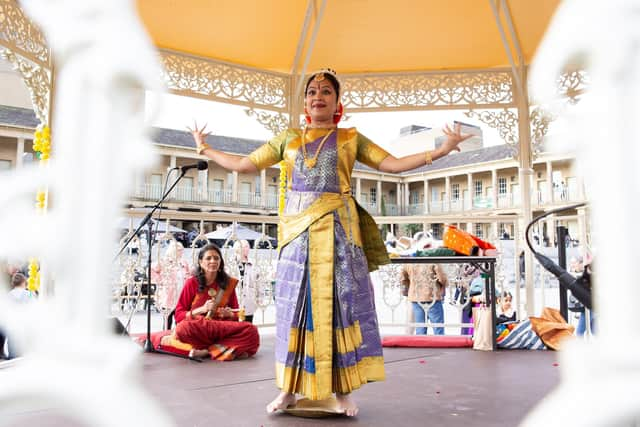The power of culture as a tool of both economic and emotional recovery - Nicky Chance-Thompson
Since then I’ve witnessed the power of culture as a tool of recovery, both economic and emotional.
As I write the sun is shining on Beacon Hill in Halifax and Spring is on its way bringing new life and hope. Thinking back to those less hopeful times my most powerful memories are of what we missed.
Advertisement
Hide AdAdvertisement
Hide AdFor me it was precious shared moments: days out, trips to the theatre or panto, live music, art, culture. Those things that bring us together, spark joy and even on the darkest days, make life worth living.


I pray we’ll never again be deprived of these life-affirming experiences and am resolute in my mission to facilitate joyful cultural events.
Financially, times are tough right now with many people struggling to afford life’s essentials. Art and culture are often perceived as nice to haves. My experience tells me otherwise. Culture more than pays its way, few investments bring so many dividends.
The positive impact of the arts on our health and wellbeing is increasingly evident. A recent report by University College London scoping over 3,000 studies identified clear roles for the arts in preventing physical and mental health conditions and even managing and treating illness.
Advertisement
Hide AdAdvertisement
Hide AdAs well as benefiting individuals, the societal and economic impact of this should not be underestimated. With an overstretched NHS dealing with increased life expectancy and ever-increasing waiting lists, should we broaden our scope for treatment and prevention with some social, cultural prescribing?
The direct financial benefits of culture are also well documented, boosting local economies by attracting visitors, new businesses and creating jobs.
Pre-pandemic the Arts Council found our culture industry contributes almost £11bn a year to the UK economy. Even rudimentary extrapolation shows what this could mean to Yorkshire.
Yorkshire has a rich history of arts and culture but its relationship with the creative industries was accelerated by the successful bid for Channel 4. Despite a media ready competitor just over the Pennines a persuasive case made under the leadership of our chair Sir Roger Marsh OBE proved the doubters wrong. It’s this confidence in the power of culture we need to harness now.
Advertisement
Hide AdAdvertisement
Hide AdI was honoured to be asked by West Yorkshire Mayor Tracy Brabin to be Deputy Chair of the West Yorkshire Combined Authority Culture Committee.
We’ve seen a passionate launch of Leeds 2023 and Kirklees Year of Music. This will be followed by years of Culture in Calderdale and Wakefield in 2024, and the eyes of the world will be on Bradford in 2025 when it is hailed as the UK City of Culture.
EMI Records has based its new Northern label in Leeds. The famous BRIT School which nurtured the talents of Amy Winehouse and Adele has chosen Bradford for a new college to “level up creative opportunity”.
In 2021 the High Street Task Force Report hailed numerous benefits of a strong art and culture offer, including creating desirable places to live and enhancing a sense of pride in place.
Advertisement
Hide AdAdvertisement
Hide AdNowhere is this more obvious than the transformation seen in Halifax after the regeneration of The Piece Hall. Local MP Holly Lynch has described residents as having a “newfound swagger”, others have called it “levelling up” in action.
We’ve seen how culture shapes reputations, brings positive media coverage and puts places ‘on the map’ through the immense reaction to our Live at The Piece Hall gig seasons and responses to our stunning sculpture installation from world renowned artist Sophie Ryder.
Culture also brings communities together and aids cohesion and we’ve seen so many joyous examples in our courtyard with huge diverse crowds for the Mela, Diwali, an Iftar, Eid, and Calderdale Pride. And the numbers stack up. An independent study by former HM Treasury economic experts found for every £1 spent running The Piece Hall, it generates £5.30. That means since reopening it has contributed in excess of £50m to the local economy - more than double the initial outlay.
The theory of trickle down economics is criticised because the benefits don’t always reach the people who need them. But how about trickle down culture-nomics? When culture works it not only enriches our daily lives, it benefits our neighbourhoods and communities.
We need to talk about the power of culture, recognise its value and prioritise it accordingly.
Nicky Chance-Thompson is chief executive of the Piece Hall Trust.